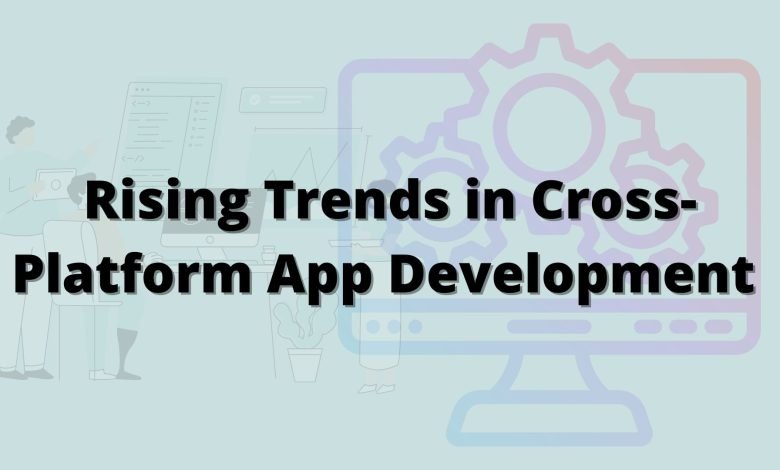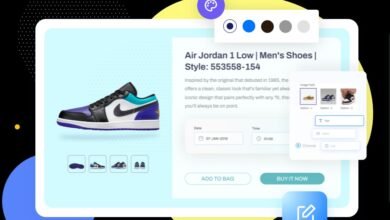Rising Trends in Cross-Platform App Development

Here’s a walkthrough of major trends in Cross-Platform App Development with the potential benefits it brings to the companies to stay ahead!
The use of mobile applications in business is more of a necessity and not just technological innovation. Hybrid developers need business knowledge and skills to develop user-friendly applications.
Cross-platform app development Features:
- Sharable Code
- Limited access to device capabilities
- Low cost of development
It is closely associated with multi-experience development Platforms (MXDP). It consists of a suite of products that offers an integrated set of front-end development tools and backend services that enable scalable development to fit into the purpose.
Compatible Technology Stack
Potential technologies that you may consider for Cross-Platform App Development in 2022:
- Microsoft Visual Studio, Eclipse, RubyMine, Idea
- CSS, JavaScript, HTML5, C#, PHP, C++
- Windows Phone, iOS, Android
- Cordova, Cocos 2DX, PhoneGap, Sencha, Ionic
- Editor Integration: IntelliJ, VSCode, Emacs
- Language: DART
- Tooling/Extension: pub.dev plugin repository
Flutter Best Practices
- How to structure, and modularize Flutter Application Code?
- State management works?
- How to authenticate and track the status across different Flutter application pages?
- How to integrate notifications by making use of Firebase Messaging package?
Cross-Platform App Development: Pros vs. Cons
| Pros (Cross-Platform App Development) | Cons (Cross-Platform App Development) |
|
|
Industries that Prefer Cross-Platform App Development
Some Industries those who prefer Cross-platform App Development Games, Lifestyle, Education, Business, Shopping, Travel, Social Networking, Music, Health and Fitness, Finance, Medical, News and Magazines, Food and Drink, Entertainment, Productivity, Utilities, Navigation, Weather, Photo and Video, Books and Reference, Sports.
Best Frameworks for Developing Cross-platform Mobile Apps
Ionic, React Native, Flutter, NativeScript, Nodejs Development, Appcelerator Titanium, PhoneGap, Sencha Touch, Corona SDK, Cordova, Ionic, Unity, Kotlin Multi-Platform, Apache Flex, Kendo UI, Kivy
Top Trends in Cross-Platform App Development
Trends that top Cross Platform App Development Companies will swear by in 2022
Beacon Technology
Beacons help in tracking and communicating at the time of emergency, avert workplace hazards, play warning signals, track assets, map warehouses.
Mobile Commerce (mCommerce)
Mobile shopping, mobile banking, mobile payments, digital wallets, MMM-commerce, mobile card readers, geo-targeting, geo-fencing, and beacon technology offers information at fingertips, multiple currency options, ease of use, and add on to the pleasure to shop without worrying about physical cash.
Artificial Intelligence
AI-based applications enhance customer service, optimizes supply chains, maximize sales, minimize routing tasks, detect hotspots, improve patient care, and identify therapies. AI saves time, effort, and cost by automating routine tasks and increasing operational efficiency.
Foresight Analytics
It involves using connected insights to make investment decisions.
6G Technology
It is the 6th generation wireless is the successor to the 5th Generation cellular technology and aims to support one-microsecond latency communications. It facilitates large improvements in the areas of imaging, location awareness and presence technology.
Blockchain Technology
With a gamut of programming languages (C++, Python, Java, Solidity, Vyper, Golang, C#, JavaScript, Simplicity, Rholang, PHP, Go, Ruby, RUST, SQL) into play, enterprises need Blockchain in finance, retail space, supply chain, data governance, smart contracts, shared processes, identification, food safety, disrupting business models, medical records, and digital rights access. It is straightening up as the backbone of internet-backed transactions and making enterprises reach a certain level of competitive advantage.
AR and VR
Artificial Intelligence (AI), Virtual Reality (VR), mobile and cloud-first approaches, Microservices and APIs, are intertwined with data to bring about a substantial change in the way customer-facing organizations like hotels and restaurants operate and deliver a great experience to their visitors.
Cloud-Computing Technologies:
(1) Server computing (containerization)
Simplifies the app development lifecycle in a cloud-native environment. Its provisions, scales, patches, schedules, and maintains infrastructure. Companies hire Computing resources on-demand and pay for services availed from cloud providers.
(2) Kubernetes (K8)
Deploys, scales, manages, and deploys cloud-native applications in different computing environments with all dependencies (configuring files and libraries)
(3) Infrastructure as Code (IaC)
Which automates and provisions IT infrastructure, performs tasks manually without developing, testing, and deploying cloud-native applications in the cloud.
(4) Edge Computing
Extends cloud computing capabilities to enhance mobility to the cloud, bringing operational consistency and performance that a multi-cloud environment (public, private, and hybrid) offers.
(5) Service Mesh with Microservices
Microservices architecture simplifies product development, harnesses API capabilities, and facilitates communication, and configuration between services. Service mesh makes use of API capabilities for faster communication, and configuration between services. It makes use of proxy to enable the seamless relationship between services in a microservices architecture.
Quickie: How do these cross-platform app development trends help you stay ahead of the competition?
All these technologies have evolved over a period of time, and set human minds and skills to automate processes and realities. App development for Android and iOS platforms fuels industrial growth. As the mobile app development companies stride by a future-oriented app development approach, it is now getting traction from every industry domain.




